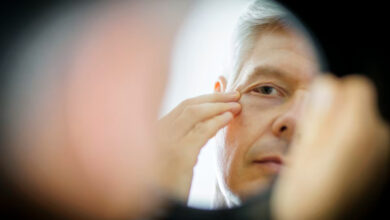
A recent study has revealed shocking findings about the microbes that may reside in microwave ovens, which many people consider to be clean appliances.
A team of scientists from the University of Valencia in Spain, in collaboration with the Darwin Bioprospecting Excellence SL, conducted a study that showed these devices contain types of microbes that may be more heat-resistant than previously thought.
For the study, researchers took swabs from the interiors of 30 microwaves from various locations, including 10 from private homes, 10 from shared spaces like company or university break rooms, and 10 from biological laboratories.
The study aimed to analyze what types of microbes might grow in these appliances. The scientists discovered a wide variety of microbial species, some of which were linked to humans.
According to ScienceAlert, the results showed that home microwaves had the least microbial diversity, which may be due to fewer sources of contamination in these places compared to public spaces or laboratories.
Certain species of microbes such as Klebsiella and Enterococcus, which can pose health risks, were present but in non-alarming quantities, the scientists found.
Microwaves in biological laboratories, on the other hand, contained the greatest diversity of microbes due to the specific conditions in which these devices are used, such as heating biological solutions and chemical compounds.
Researchers found that some microbes present in these microwaves can withstand harsh conditions like radiation and high heat. Prominent among these species are Deinococcus and Hymenobacter, which are known for their ability to resist radiation and extreme environmental conditions.
While the microbes in home microwaves were not as hardy as those found in laboratories, the study emphasized the importance of regular microwave cleaning.
The scientists explained that the microbes that thrive in these appliances may be capable of surviving in non-ideal environments like microwaves, making it necessary to consistently maintain their cleanliness.
Based on these findings, experts recommend regularly cleaning microwaves with detergents, especially in areas with higher contamination, such as shared kitchens or laboratories, to ensure the elimination of any potential microbes.




